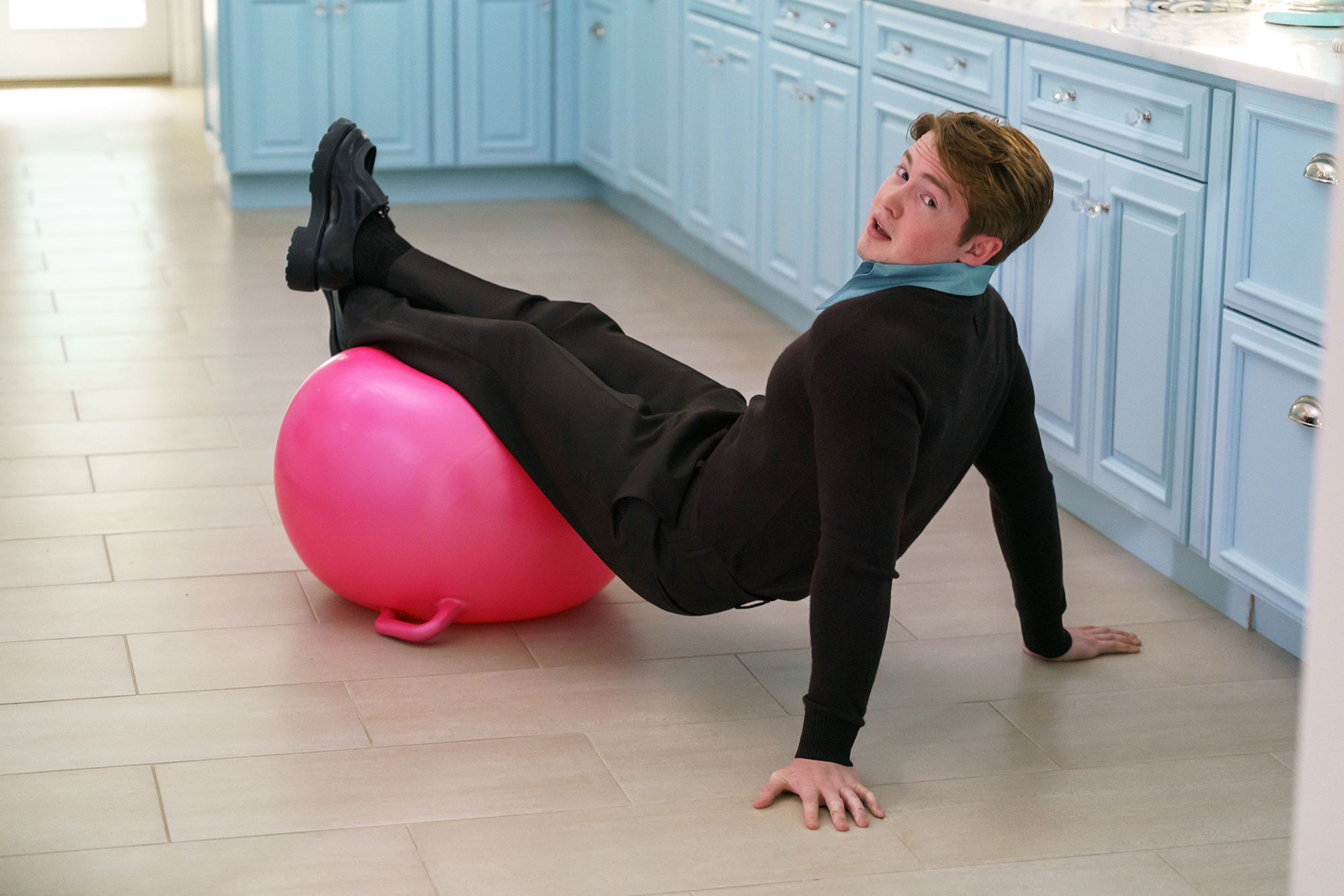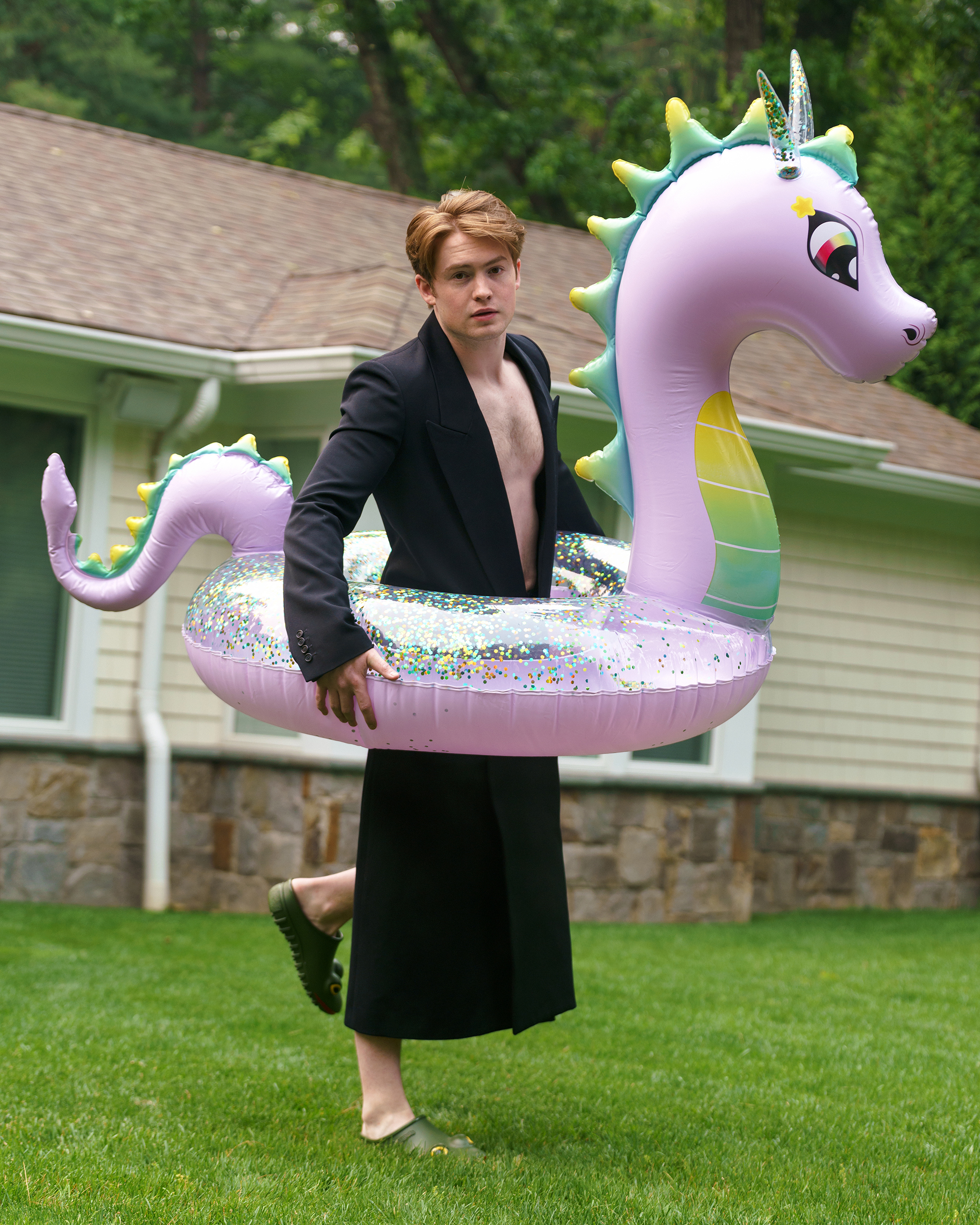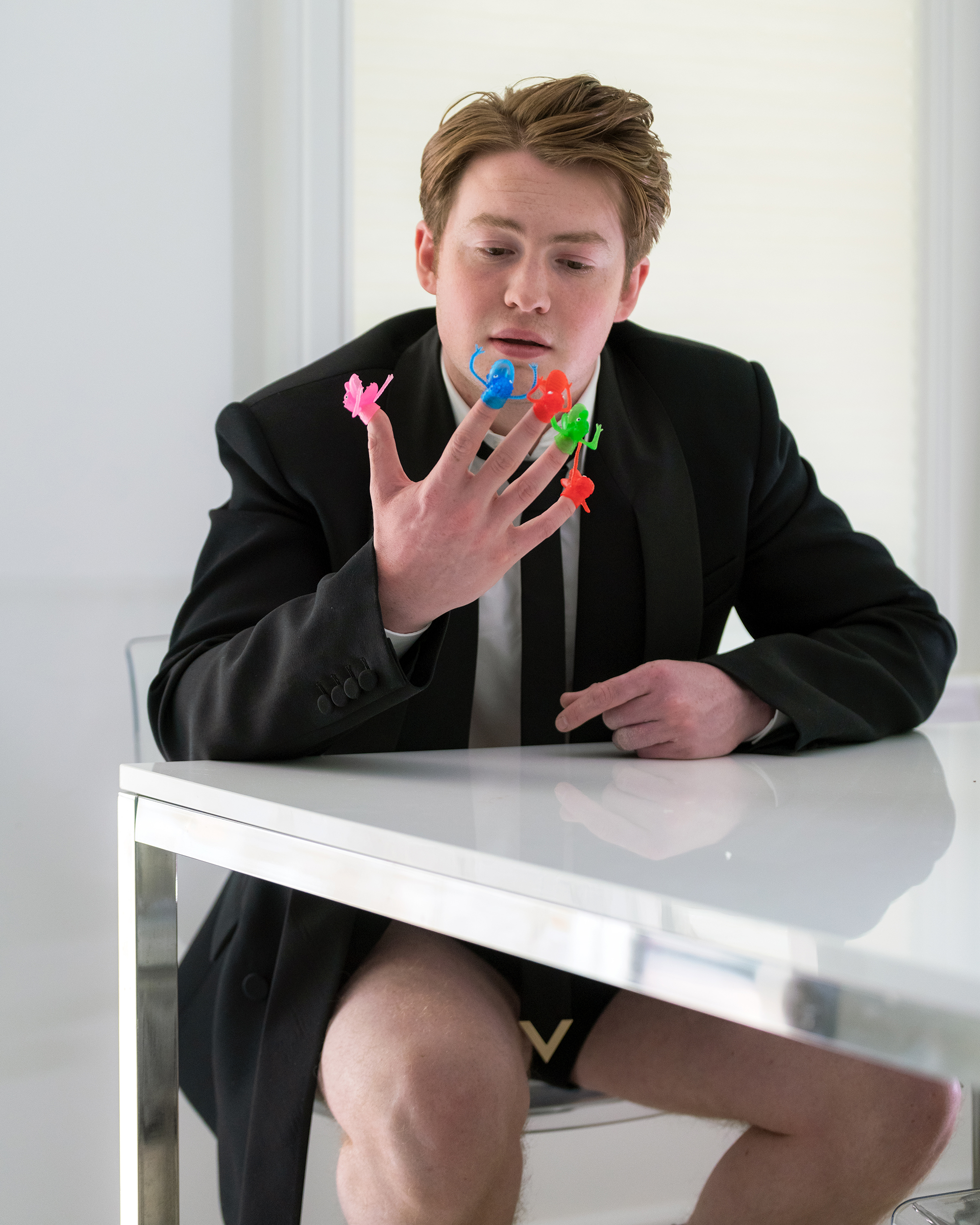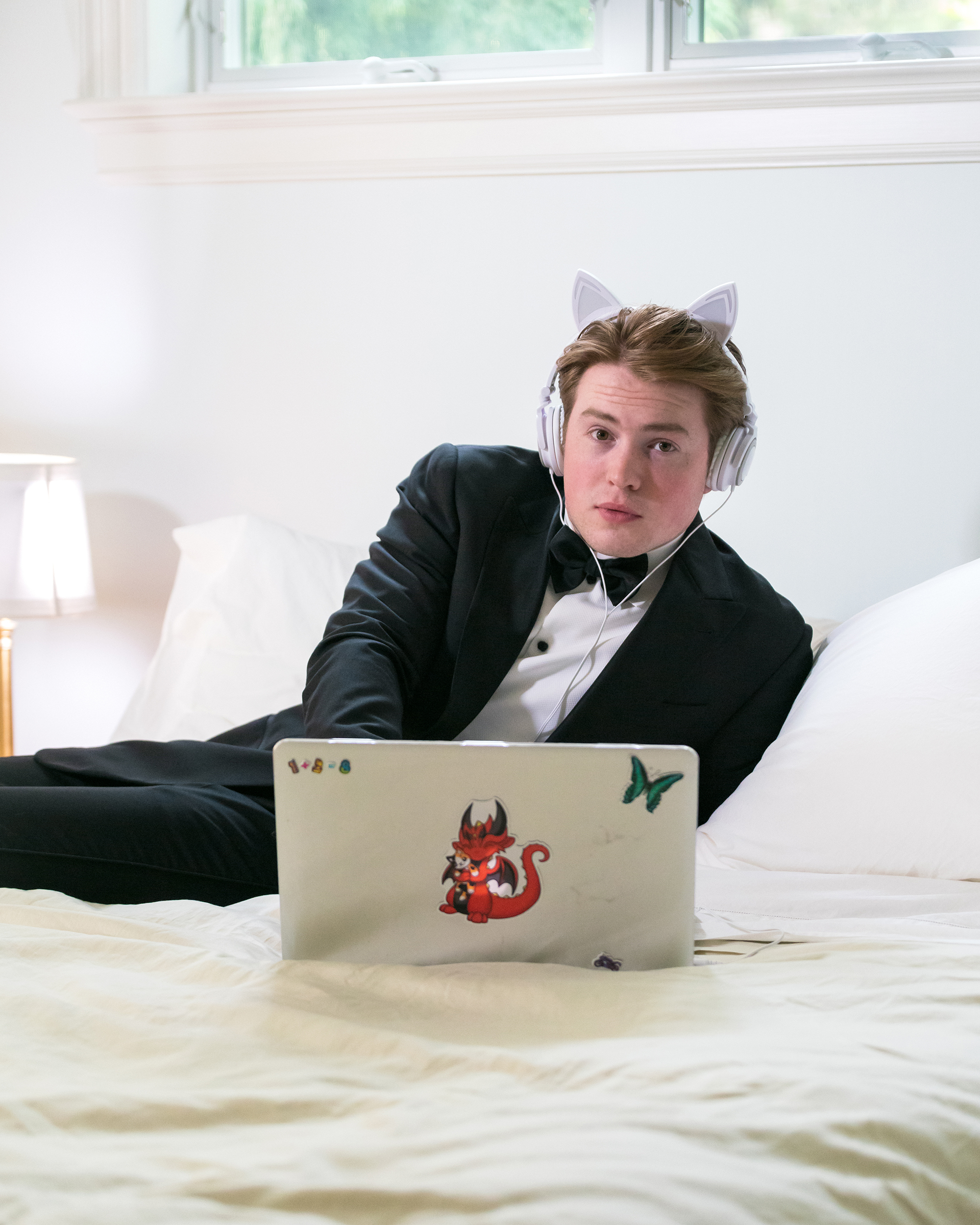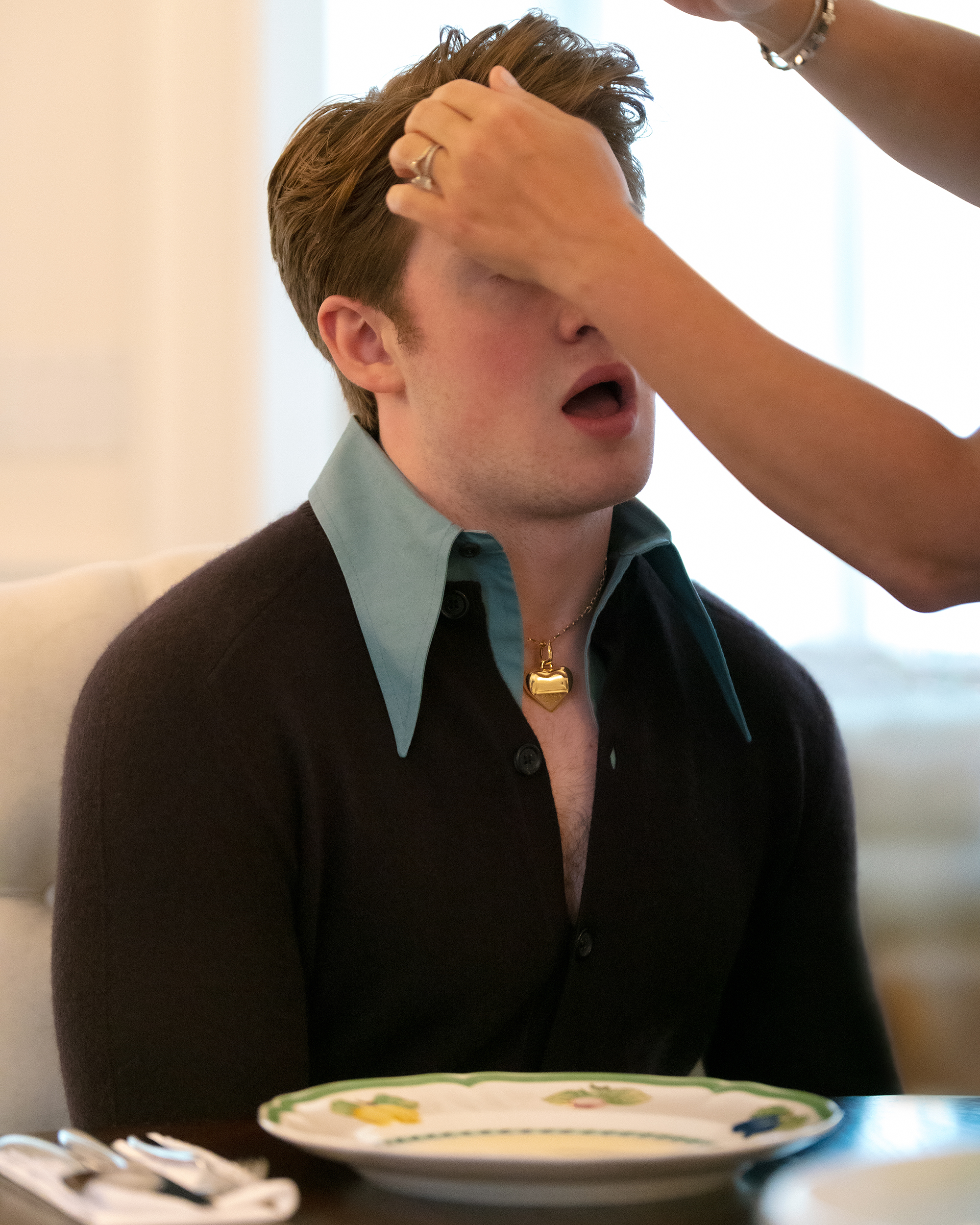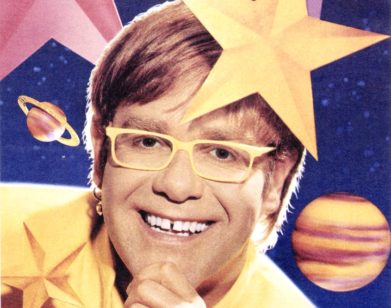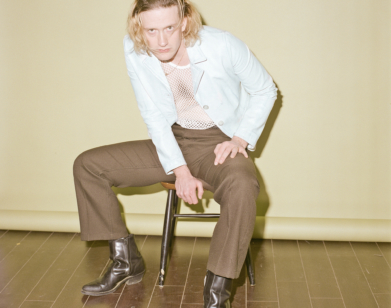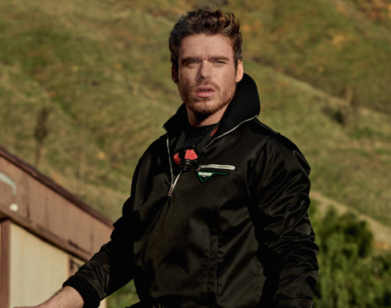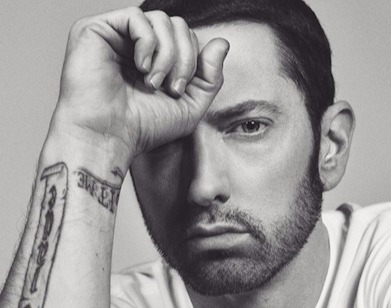BOY
Kit Connor Gets a Therapy Session From Jonathan Anderson
MONDAY 9:30 AM JULY 3, 2023 LONDON
When Kit Connor gets on the phone with designer and Loewe creative director Jonathan Anderson, therapy is in session, and the child actor turned star of the queer coming-of-age series Heartstopper is ready to open up. Here, the duo discuss onscreen chemistry, growing up on set, and what it’s like to explore your sexuality in front of millions of nosy fans.
———
JONATHAN ANDERSON: Hey, Kit.
KIT CONNOR: Hello.
ANDERSON: How are you?
CONNOR: I’m very good. Thank you for doing this.
ANDERSON: You’re more than welcome. Ready for these questions?
CONNOR: I’m more than ready.
ANDERSON: I always find interviews can be like therapy.
CONNOR: This is the main kind of therapy I get.
ANDERSON: Okay, I’m going straight in. Have you ever fallen in love on a movie set?
CONNOR: Oh, that’s a big question, Jonathan. I would say I’ve fallen in love on every movie set I’ve ever been on. I think I’m in love with several people in the Heartstopper cast. That’s a really good question—I’d say it’s hard not to.
ANDERSON: When does acting feel like work and when does it feel like playing?
CONNOR: The nature of the job is you are kind of playing anyway. If you’re not playing then you’re not really going to get the full potential of the scene. At the same time, in a very practical sense, when it’s the 12th hour of the day and you’ve been doing the same scene for, let’s say, seven hours, that’s when it tends to feel a little bit more work-related. But I love it, so I wouldn’t ever call it work.
ANDERSON: I just finished wrapping a film [Challengers] with Luca [Guadagnino] where I was doing the costumes, and it’s amazing to see that moment of, when you’re repeating a scene—how magical it is to be able to encapsulate the same thing and become better through repetition and finding realism in it. I find it one of the most amazing things to watch, but at the same time, you realize that the actor is working, that ultimately it’s a craft.
CONNOR: Right.
ANDERSON: How would you define chemistry with another actor? And when do you know you have it or you don’t?
CONNOR: Chemistry’s a real puzzle for me because a lot of the time you can’t even tell if you have good chemistry at first. Joe [Locke] and I, on Heartstopper, we first did a chemistry read on Zoom, and I don’t know how they’re able to judge chemistry over Zoom for two boys who have never met and didn’t get a chance to speak, but apparently in the scene it felt like there was something there. I now know we have really good chemistry because we’re extremely close, but I think chemistry onscreen is something that sometimes just doesn’t make any sense. Sometimes you see people who can’t stand each other, and then onscreen it’s like magic.
ANDERSON: What’s more appealing to you, the role that you think you’re going to be good at or the role that scares you?
CONNOR: In all honesty, the one that’s more appealing is definitely the role that I think I’m going to be good at. But I’ve been making a conscious effort over the last year or so to go for things that are more difficult. I just did a film earlier this year in Belfast, which was the hardest thing I’ve ever tried to do. Who knows if I succeeded, but I think it was a good thing to do.
ANDERSON: As a kid was it hard balancing being an actor and trying to have a normal kid’s life?
CONNOR: I wouldn’t want to be dramatic about it, but I definitely think I was forced to mature in certain ways that made me speak a bit like an old man at times. But then I also sometimes felt, whether this was true or not, a little socially stunted. I never went out to parties really—although maybe I just wasn’t popular, who knows? But I never did those things. A lot of my friends and family would be going out on holiday and I’d be working. That was the only thing that did have a sort of lasting impact. But for the most part I really loved growing up on film sets.
ANDERSON: I just worked on a film for two months with Luca, called Queer. It was based on a book that is quite seminal in queer culture, and I had this amazing and kind of strange experience where you’re working on a project and then you fall into the project and you become the project. So suddenly, at one point you become the book. And when I was going back to my job I felt like, “Am I trapped in this book?” So I wanted to know, did that ever happen to you, where you felt like you had become the situation?
CONNOR: For a lot of actors that would be their goal for almost everything they do, to try and have it become their entire soul for the time that they’re doing it. But I think the most it’s ever happened for me was when I did the film Rocket Man. I wanted to take it really seriously, so I made this huge playlist of Elton John’s songs and, for a year straight, all I listened to was him. I would read books about him, watch documentaries—I was entirely, completely obsessed with Elton.
ANDERSON: Has a project ever changed you?
CONNOR: I think Heartstopper made me more confident in who I was, both in terms of my sexuality and my place in spaces. I’d really be a different person if it weren’t for Heartstopper.
ANDERSON: You’ve become sort of a queer crush. Are you aware of that? And do you have feelings about that?
CONNOR: I mean, it’s a huge compliment to get, obviously. I do think it’s more so because the character that I played is so lovely. We were able to capture the hearts of people in that way. The show came out when I was in my final year of school, and I’d take the bus every morning, so I would stand at the bus stop and when there was a bus coming by there would be a lot of teenagers who’d see me and pull out their phones. I suddenly became much more conscious of the fact that I had to maybe do my hair a bit more or just be a little more presentable at 7 in the morning! [Laughs]
ANDERSON: There’s a lot of speculation in today’s world about people’s sexual orientation, which I hate personally. You’ve experienced a version of that. What did you learn from that experience?
CONNOR: I found it very disappointing, especially given my age—although I don’t think that it should be something that is speculated on at any age. I really wanted to have that boundary. It was my private information and my personal life that I wanted to keep to myself. So I was kind of frustrated with myself that I gave into it. What I learned from that experience is that there are certain things I want to keep private in my life. I’ve also learned that people are always going to have something to say. Even with me coming out, people will still have something to say—whether they believe me or not, whether they suddenly think, “Oh, now can he play straight roles?” But whatever they say, they’re going to say something.
ANDERSON: As I’ve told you before, I think you were incredibly human and a huge inspiration to many people. You should hold onto that because there are not many people who could deal with that pressure. I couldn’t deal with pressure like that. What advice would you give to people who are under pressure to come out?
CONNOR: I mean, thank you. I’ve met certain people in the last year-abouts who are going through this kind of thing, where they’ve been in a show that’s blown up or something like that, and they’ve suddenly found themselves in this world where there are a lot of eyes on them. Who you are as a person is suddenly really important to people. There’s something really weird and just wrong about it. Human beings are only really designed to meet a certain amount of people in our lives—to be known by and know a certain amount of people—and the concept that suddenly we’re known by millions is really overwhelming. But the advice I would give is, again, what I’ve tried to teach myself over the last year—just that people will always talk. And it’s not necessary to fit into these boxes that people are going to try to fit you into. So I suppose I would tell anyone in a similar situation to just try to be who you are, and try to be aware of the fact that no matter who you are, someone’s going to be upset by it somehow.
ANDERSON: I said this was going to be therapy! What does a day off in the life of Kit look like?
CONNOR: Oh, it’s extremely boring. I tend to wake up, have breakfast, some coffee. I’ve been trying to read a bit more, watch films, stay off my phone. Sometimes I’ll be lucky enough to be sent a script that I can read. But it’s great because I’ll go to, say, Paris or something like that and have an extraordinary time, and then I’ll come back and remind myself, “Ah yes, that’s a little fantasy. Now I’m back to reality and I’m going to walk my dog.”
ANDERSON: When was the last time you were starstruck?
CONNOR: We met Brian Cox at the Loewe show, and that was unbelievable. The night before, we had a chat with him about Shakespeare and he told us some stories, and I was like, “What the fuck is going on?” I also tend to get quite starstruck with people who are on a show that I watch with my parents. We used to watch Coronation Street, and I brought my mum to the NTAs [National Television Awards], and that was a real night-and-a-half because it was all these Coronation Street people. Like, “That’s that person from Corrie!” Me and mum were just loving it.
ANDERSON: In three words, what do you find most interesting about American culture?
CONNOR: Loud Broadway audiences.
ANDERSON: Very nice.
CONNOR: Thank you.
ANDERSON: Would you ever consider moving to L.A. or New York?
CONNOR: I would love to move to New York. In fact, you were there on my first night in New York at that JW dinner. The next morning I went to a store, which is apparently one of your favorites, the Front General Store in Brooklyn, and bought this here jumper, actually.
ANDERSON: I’ve told so many people about it that I feel like there’s not going to be anything left in the store.
CONNOR: It was very busy when I went in there. I was like, “How many people came from Jonathan?”
ANDERSON: What are you reading right now?
CONNOR: I recently finished Ethan Hawke’s A Bright Ray of Darkness. It’s a semi-autobiographical book about an American film star who’s making his Broadway debut, and at the same time is in the media for cheating on his rock star wife. I found it quite insightful. One of the things I love about being a young actor is you get to work with really amazing older actors, and they’re like beacons of knowledge. You can listen to them for hours. In this book, it’s sort of like Ethan Hawke is taking all the advice that he has learned from some of these older actors that he’s sat and listened to, and he’s writing it down. I’m also currently reading a collection of short stories called What We Talk About When We Talk About Love by Raymond Carver. I’m quite dyslexic so reading is something that I’ve only over the last year been really getting back into.
ANDERSON: I’m exactly the same, completely dyslexic. If you were to read my text messages you’d be like, “Who am I talking to?!” Sometimes I read back things and I’m like, “I did not write that.” And when I get very emotional about something, it gets even worse.
CONNOR: You might have to send a voice message at that point, I think.
ANDERSON: Recently, I was reading back my replies, and I was like, “Well, no wonder no one has any idea what’s going on!” [Laughs] Where do you see yourself in five years?
CONNOR: As an actor I’d love to be better than I am now, because it’s a constant fear of mine to blow up as an actor in a show where I’m playing a teenager and then be playing a teenager for the rest of my life. And then as a person, in the least wanky way possible, I think I just want to be happy.
ANDERSON: Well, Kit, you’re amazing and you have one of the brightest futures out there. You’re the most genuine, honest person I have met along my journey as a fashion designer and working with talent.
CONNOR: Oh, thank you. I mean, I think you’re amazing, and you know it.
———
Grooming: Nicole Elle King using Dyson at The Wall Group
Photography Assistant: Evan Eisel
Fashion Assistant: Emmalynne Walpole

